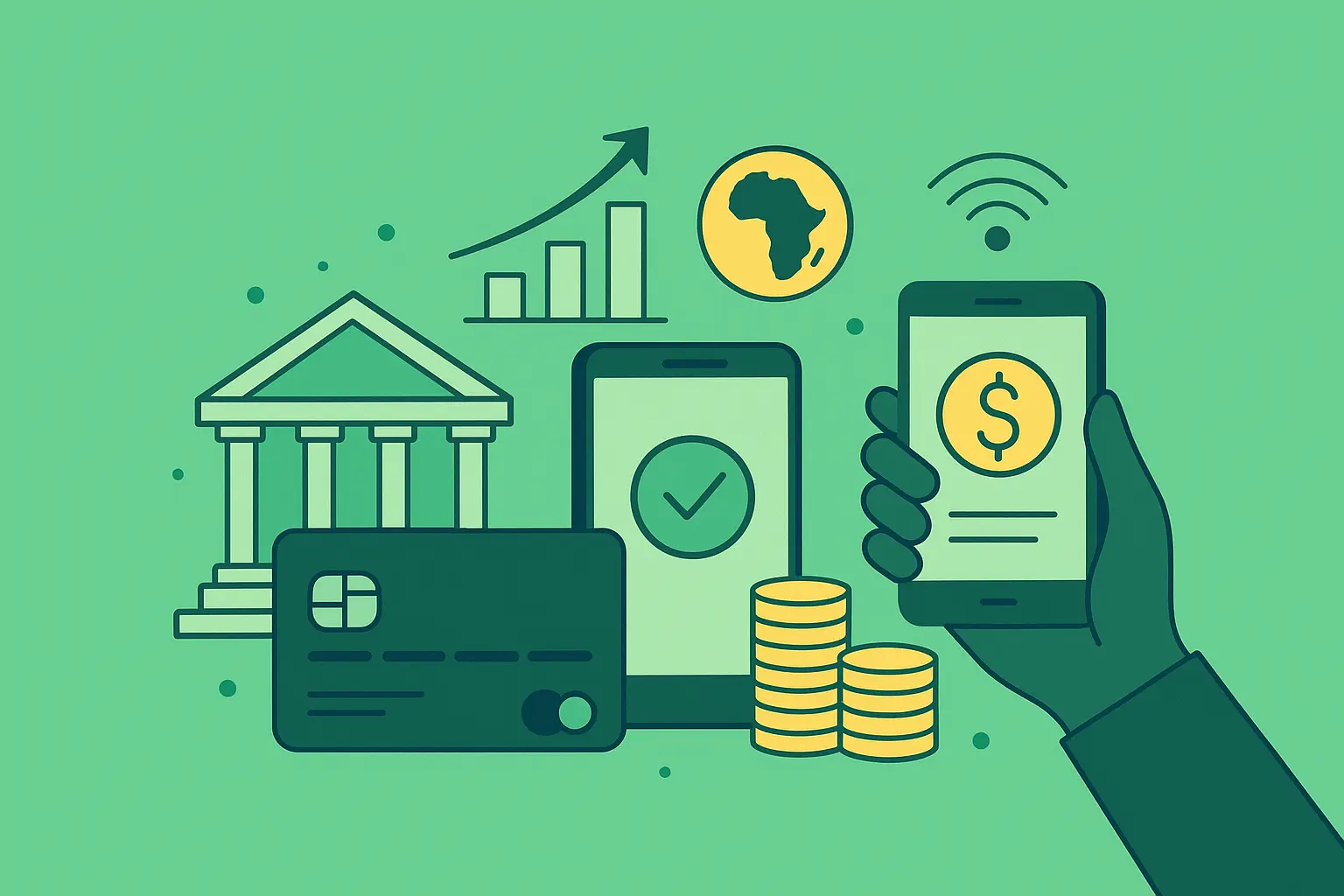Fintech Leads Africa’s Venture Funding Once Again
Africa’s fintech sector is once again proving to be the engine of the continent’s startup economy. In the first half of 2025, fintech startups attracted 45% of all disclosed venture capital funding, amounting to approximately $640 million out of a total $1.4 billion raised by African startups. This figure, reported in the BD Funding Index via BusinessDay, reinforces fintech’s position as the most sought-after investment sector in Africa, despite global economic headwinds and capital tightening in other regions.
The surge in funding reflects both investor confidence in Africa’s long-term digital finance potential and the ongoing urgency to address deep-rooted financial access gaps across the continent. From mobile payments and digital banking to agent networks and infrastructure tools, fintech startups are delivering solutions where traditional institutions have lagged.
Strong Recovery in Q2 Signals a Rebound
According to Disrupt Africa’s Q2 2025 report, the sector saw a significant uptick in investment in the second quarter of 2025, with fintech equity funding jumping from $98 million in Q1 to $157 million in Q2. This rebound suggests the effects of the global funding slowdown are beginning to subside, at least for high-performing sectors like fintech that continue to demonstrate impact and scale.
Several high-profile deals in the first half of the year contributed to this momentum:
- Nigerian-based fintech Moniepoint raised $85 million to expand SME banking and agent infrastructure.
- South Africa’s Yoco secured $42 million to increase its card machine adoption among informal merchants.
- Chipper Cash raised $20 million in debt to scale its cross-border payment and FX platform.
Solving Structural Problems with Scalable Solutions
The continued dominance of fintech is not accidental. It is the result of persistent and growing demand for digital financial solutions across Africa’s fragmented economies. Despite improvements over the last decade, nearly 45% of adults in Sub-Saharan Africa still lack access to formal financial services, according to the World Bank Global Findex 2021. Fintech startups are uniquely positioned to address this challenge through mobile-first and data-driven solutions that traditional banks have struggled to deliver.
Cross-border payments remain one of the most glaring pain points. Africa has some of the highest remittance fees in the world, averaging around 8.5%, according to the World Bank Remittance Prices Worldwide report. Startups like LemFi and Eversend are offering low-cost wallet-to-wallet transfers, eliminating friction for families, freelancers, and micro-merchants.
Agent Networks, BNPL, and the SME Credit Gap
Fintech is also thriving because of its ability to scale in rural and offline environments. Companies like Moniepoint and OPay have built hybrid distribution models that combine robust digital platforms with human agents on the ground. These models are crucial for reaching the last-mile population in areas where internet access is weak or digital literacy is limited.
Moreover, Africa’s SME sector—responsible for over 80% of employment in many countries—remains chronically underserved by banks. Fintechs are closing this gap through buy-now-pay-later (BNPL) services, embedded financing, and credit-scoring models based on mobile usage and transaction behavior. Yoco’s analytics tools, for example, help South African merchants access working capital with better risk profiling.
A Mobile-First Continent Creates Fintech-First Demand
The rapid growth in mobile penetration is a foundational pillar supporting fintech scalability. According to the GSMA Mobile Economy 2024 report, Sub-Saharan Africa had over 678 million mobile subscribers in 2023, projected to surpass 700 million by the end of 2025. This mobile-first environment enables startups to deliver financial products directly to users without needing costly branch infrastructure.
Digital wallets, mobile investment platforms, and API-led banking services are all growing because they can plug into this mobile network without requiring users to be banked in the traditional sense.
Changing Investor Behavior and Local VC Leadership
Investor sentiment is also evolving. While global investors like Tiger Global, Stripe, and Accel have long participated in African fintech, there’s now a surge of local and regional VC participation. African-led funds such as Future Africa, TLcom Capital, and Launch Africa are now frequently leading or co-leading seed and pre-Series A rounds.
At the later stages, DFIs (Development Finance Institutions) such as the IFC and AfDB are stepping in with de-risked capital to help fintechs meet regulatory and scaling requirements. This mix of local knowledge and international structure is helping stabilize the ecosystem.
Fintech Is Africa’s Economic Infrastructure
As fintech continues to absorb nearly half of Africa’s startup capital, it’s clear the sector is now viewed as core infrastructure—on par with energy, transport, and agriculture. Whether through digital identity, payment rails, or savings tools, fintech startups are embedding themselves into daily economic life across the continent.
For founders, this moment represents opportunity—but also scrutiny. Investors are demanding solid growth metrics, strong governance, regulatory compliance, and realistic paths to profitability. Startups that cannot demonstrate these fundamentals may struggle to attract meaningful capital in the second half of the year.
For everyday users and small businesses, the upside is clear: increased competition means better services, lower fees, and more options.
What to Expect in the Second Half of 2025
The rest of 2025 could see continued acceleration in ecosystem-building. Mergers and acquisitions may increase as well-capitalized fintechs look to acquire licenses, users, or specialized talent. Regulatory environments will remain a key variable—countries that offer sandbox environments and pro-innovation frameworks are likely to attract more inbound investment.
Fintech’s 45% share of startup funding in H1 2025 is more than just a trend; it’s an indicator that Africa’s next leap forward in economic empowerment is being built on digital financial rails.
